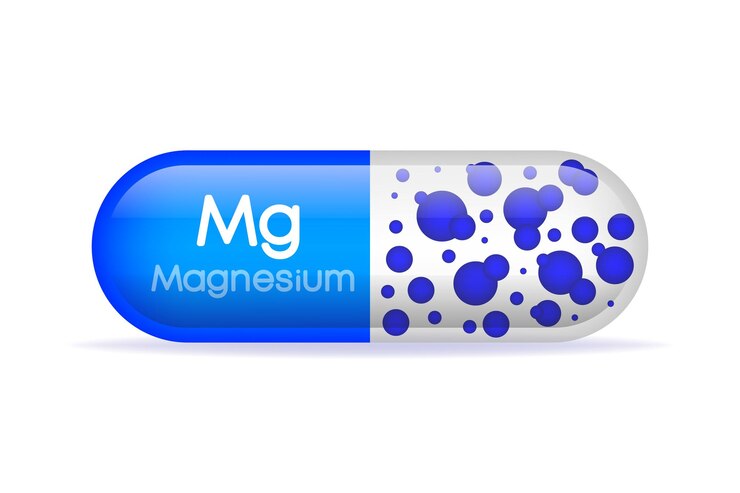The mental health benefits of magnesium are so well-documented that the nutrient is popularly referred to as “the original chill pill” and “mood mineral”.
Despite this, recent research shows that most people don’t consume enough magnesium. This study found that a whopping 48% of the US population consumes less than the recommended amount. This shouldn’t be the case as magnesium is one of the minerals that boosts one’s mental well-being. Below, you’ll find a more detailed explanation of the magnesium’s role in mental wellness.
The Link Between Magnesium and Mental Health
Some minerals are more abundant in the body than others. Magnesium is ranked the fourth most abundant, following closely behind calcium, phosphorus, and potassium.
But what’s even more interesting is the role it plays in the body. It’s responsible for more than 600 cellular reactions, including DNA production and development of healthy muscles and bones.
A lesser known function of magnesium is the role it plays in maintaining healthy brain function. More specifically, it regulates the N-methyl-D-aspartate (NMDA) receptors that facilitate vital processes in the brain, including development, memory and learning.
To understand magnesium’s role in the brain, it’s worth examining how the NMDA receptors work. In adults, the magnesium nutrient resides in these receptors. Once inside, it shields the receptors from being activated by weak signals, which cause the nerve cells to be stimulated aimlessly.
Without sufficient levels of magnesium, only a few of the NMDA receptors are protected, leaving them susceptible to unnecessary stimulation. This, in turn, hinders proper brain functioning – which subsequently affects your mood, memory, emotions and ability to learn.
It is no wonder so many studies link magnesium deficiency to depression, anxiety and other psychiatric disorders. Take this survey, for instance, that involved 8,800 respondents. Those aged 65 years and below who also had low magnesium levels were found to be 22% more likely to suffer from depression than those with adequate levels.
A different study revealed that taking magnesium supplements significantly reduces symptoms associated with major depression. In fact, some studies reveal that it’s just as effective as using an antidepressant.
Magnesium Glycinate Supplementation
By now, you understand the importance of magnesium in mental health. As such, you should try to incorporate magnesium-rich foods into your diet. Think leafy greens, nuts, seeds and grains.

The recommended daily intake of magnesium is 350 to 360 mg for women and 400 to 420 mg for men. However, it can be difficult to achieve this threshold by relying solely on your diet, which is why I also recommend magnesium supplements.
It’s true that there are several magnesium supplements to choose from: magnesium taurate, magnesium threonate and magnesium glycinate.
But of the three, magnesium glycinate is considered the best; and for good reasons. This supplement constitutes a blend of magnesium and an amino acid called glycine.
Glycine is what allows the supplement to be readily absorbed into the body with minimal laxative effects. Put simply, it boosts your magnesium levels without affecting your digestive system as largely as other supplements do.
If you’ve been wondering whether magnesium plays any part in your mental health, the answer is a resounding yes. Multiple studies show that supplementing your diet with magnesium minimizes risk of getting depression. And for individuals diagnosed with major depression, magnesium glycinate supplement can reduce the symptoms associated with the condition.








Thank you for your sharing. I am worried that I lack creative ideas. It is your article that makes me full of hope. Thank you. But, I have a question, can you help me?